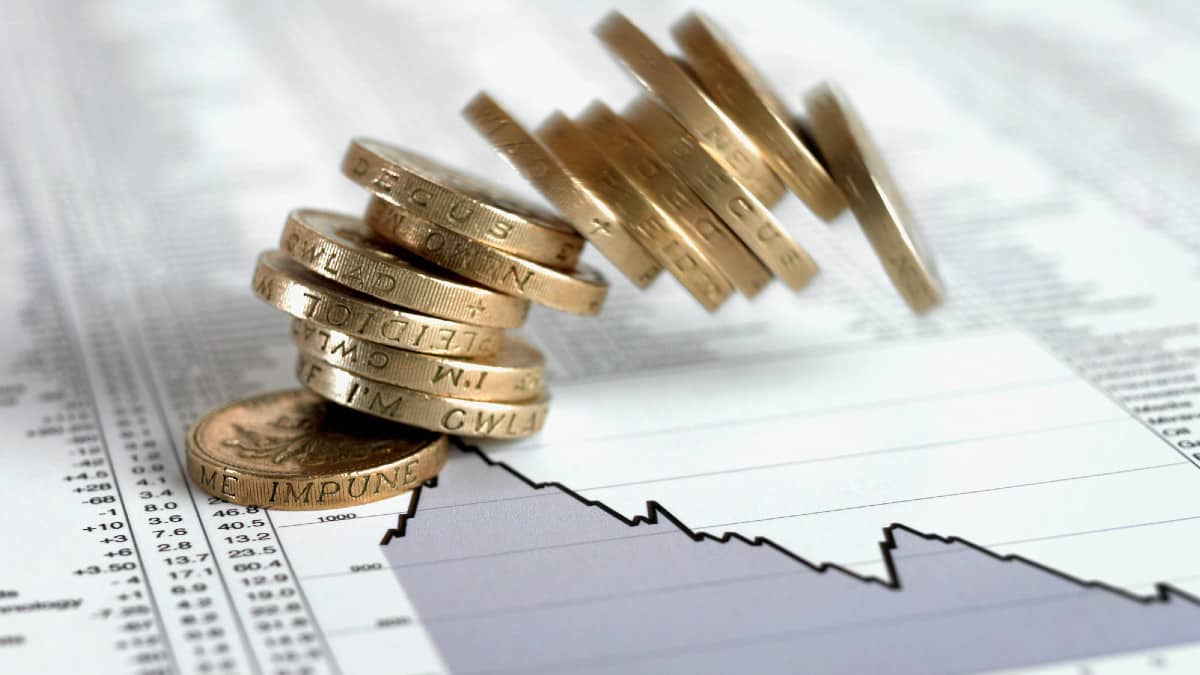Recently, the FTSE 100 hit an 18-month high, but Vodafone (LSE: VOD) is one stock that has not joined the party. Over the past year, shares in the telecommunications company are flat, excluding dividends. By comparison, the FTSE 100 has returned 22%, excluding dividends.
Year-to-date, Vodafone has declined by 11%, while the lead index has returned 10% (both excluding dividends).
One Killer Stock For The Cybersecurity Surge
Cybersecurity is surging, with experts predicting that the cybersecurity market will reach US$366 billion by 2028 — more than double what it is today!
And with that kind of growth, this North American company stands to be the biggest winner.
Because their patented “self-repairing” technology is changing the cybersecurity landscape as we know it…
We think it has the potential to become the next famous tech success story. In fact, we think it could become as big… or even BIGGER than Shopify.
Click here to see how you can uncover the name of this North American stock that’s taking over Silicon Valley, one device at a time…
Including dividends paid to investors, the Vodafone share price has produced a total return of 7.5% over the past 12 months. Year-to-date, the stock has produced a total return of – 6.4%.
Unfortunately for the company’s investors, this performance is not a one-off. Over the past five years, the stock has returned -6.6% per annum, including dividends. This implies that every £100 invested in the shares five years ago is worth just £72 today.
What is interesting about this dismal performance is that investors have been selling the stock despite Vodafone’s relatively stable fundamental performance.
Fundamental performance
For its 2017 financial year, the company reported revenues of €47bn and a net income of -€6.3bn. These figures were €44bn and €112m respectively for the financial year ending March.
And as the stock has fallen, Vodafone’s valuation has become more attractive. At the time of writing, the stock is trading at a forward price-to-earnings (P/E) multiple of 13.7. Five years ago, the multiple was 48.
That said, using a P/E multiple to value telecommunications businesses can throw up some interesting figures. This is because these companies have to report the depreciation value of their assets on the profit and loss statement. These figures can significantly impact profitability, even though the company is technically not spending this money.
As such, some analysts prefer using the earnings before interest, tax, depreciation and amortisation (EBITDA) figure. This clearly strips out depreciation and amortisation and can be used as a proxy for cash flow generation from operations.
Using this number compared to Vodafone’s enterprise value (a measure of a company’s total value including debt), the stock is currently trading at an EV/EBITDA multiple of just 4.4. Between 2015 and 2019, the stock traded at an average EV/EBITDA multiple of 8.3.
Vodafone does not only look appealing, based on its valuation metrics. As the stock has fallen, its dividend has spiked as well. At the time of writing, the shares support a dividend yield of around 7%.
So looking at these figures, it is clear that the business is much cheaper today than it was a few years ago. The question is, why is the stock that much cheaper than in 2017?
Vodafone share price sell-off
There is no clear-cut answer to this question. Instead, it appears as if there are a couple of reasons why investors have been avoiding the business recently.
For a start, the group has a lot of debt. It has been trying to reduce borrowings by selling off assets such as its tower business and reducing costs. However, the enterprise still has a mountain of borrowings it needs to get under control.
In November last year, group debt totalled €41bn (£34bn), up from €27bn in 2019. The company’s current market capitalisation is just £30bn. As the Vodafone share price has fallen, the gap between its market value and its overall debt pile has only become more expansive.
Cash flow is also an issue. Combing through the company’s full-year results for the financial year to the end of March 2021, I can see that operating cash flow from group operations totalled €3.1bn in fiscal 2021, down from €5bn in fiscal 2020.
Of this total, the group paid out €2.4bn in dividends to investors. That does not leave much cash left over for debt repayment. Neither does it leave the company with much headroom if free cash flow (FCF) declines further. Should FCF suddenly fall due to higher capital spending, Vodafone may have to start borrowing money to cover its dividend. That is never a good situation.
The group has already cut its dividend once in the past five years (from 15c per share to 9.2c in 2019). Considering this cash flow situation, I would not be surprised if the market is anticipating another reduction.
These are the main risks and challenges facing the Vodafone share price today.
Growth opportunities
There are plenty of opportunities for the company as well. Its recent deal with Liberty Global helped boost the overall size of the European business, and it is now reaping the gains from this merger.
Digital transformation initiatives, and merger synergies, have already generated cost savings of €0.5bn across the enterprise. The addition of the assets also helped cushion the effect of coronavirus on Vodafone last year, when the company suffered from a significant drop in roaming revenue due to travel restrictions.
Thanks to the impacts of the acquisition, and the reopening of economies, management believes EBITDA will expand between 3% to 5% in its current financial year.
If the group can hit this target, investor sentiment towards the business may start to improve. What’s more, as long as there are no significant capital spending requirements, rising cash flows should help the organisation further reduce debt, which is greatly needed.
In the first quarter of the company’s financial year, consolidated service revenue increased 3.3% overall.
Vodafone share price outlook
These numbers appear to suggest that the enterprise is heading in the right direction.
Based on this, I am cautiously optimistic about the outlook for the Vodafone share price. Nevertheless, as the company has disappointed the market many times in the past, I would not buy the stock for my portfolio today.
I think the shares will continue to languish until the group publishes concrete evidence that its plan to reduce costs, debt, and increase profitability is yielding results. We may not get this information until the beginning of next year.
In the meantime, the stock could continue to drift lower unless Vodafone publishes an incredibly upbeat trading update. If it does, the market may begin to re-rate the stock. But I feel this is far from guaranteed.
5 Stocks For Trying To Build Wealth After 50
Markets around the world are reeling from the coronavirus pandemic…
And with so many great companies trading at what look to be ‘discount-bin’ prices, now could be the time for savvy investors to snap up some potential bargains.
But whether you’re a newbie investor or a seasoned pro, deciding which stocks to add to your shopping list can be daunting prospect during such unprecedented times.
Fortunately, The Motley Fool is here to help: our UK Chief Investment Officer and his analyst team have short-listed five companies that they believe STILL boast significant long-term growth prospects despite the global lock-down…
You see, here at The Motley Fool we don’t believe “over-trading” is the right path to financial freedom in retirement; instead, we advocate buying and holding (for AT LEAST three to five years) 15 or more quality companies, with shareholder-focused management teams at the helm.
That’s why we’re sharing the names of all five of these companies in a special investing report that you can download today for FREE. If you’re 50 or over, we believe these stocks could be a great fit for any well-diversified portfolio, and that you can consider building a position in all five right away.
Click here to claim your free copy of this special investing report now!
This post was originally published on Motley Fool







